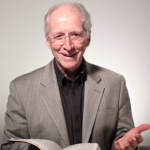https://www.monergism.com/thethreshold/articles/onsite/gracelist.html
Monthly Archives: July 2017
Differences Between Calvinists and Arminians
 Interview with Dr. John Piper: Watershed Differences Between Calvinists and Arminians (original source here)
Interview with Dr. John Piper: Watershed Differences Between Calvinists and Arminians (original source here)
Audio Transcript
A listener to the podcast, Peter from Seattle, writes in: “Pastor John, what is the main difference between Calvinism and Arminianism? I’m trying to explain this difference to my 13-year-old son and would love to boil it down to one or two watershed differences. What would those be?”
Okay, I am going to give him more than he asked for. Then I am going to give him what he asked for, okay? I think it will be helpful for me to walk through the so-called five points because these five points are what the Arminian Remonstrance in 1610 threw back at the Calvinists. The Calvinists didn’t come up with five points to start with. The Calvinists wrote their vision of what salvation looks like and how it happens under God’s sovereignty. When the Arminians read it, they said, “These are five places we don’t agree.” That is where we got these five points. So, if you want to talk about what is the key soteriological differences between Arminianism and Calvinism, you have to take these one by one.
So here is what I will do. I will give one sentence for each Calvinism and Arminianism under the five points, and then I will say what I would say to my 13-year-old.
1. Depravity— Calvinism says people are so depraved and rebellious that they are unable to trust God without his special work of grace to change their hearts so that they necessarily and willingly — freely — believe. Arminians say, with regard to depravity, people are depraved and corrupt, but they are able to provide the decisive impulse to trust God with the general divine assistance that God gives to everybody.
2. Election — Calvinism says that we are chosen. God chooses unconditionally whom he will mercifully bring to faith and whom he will justly leave in their rebellion. Arminians say God has chosen us, elected, to bring to salvation all those whom he foresaw would believe by bringing about their own faith— providing the decisive impetus themselves. In those, God doesn’t decisively produce the faith that he foresees. Continue reading
